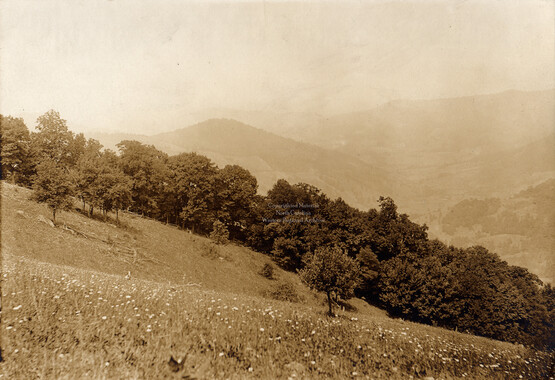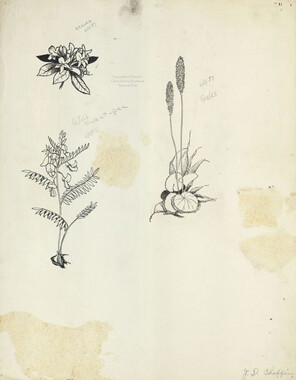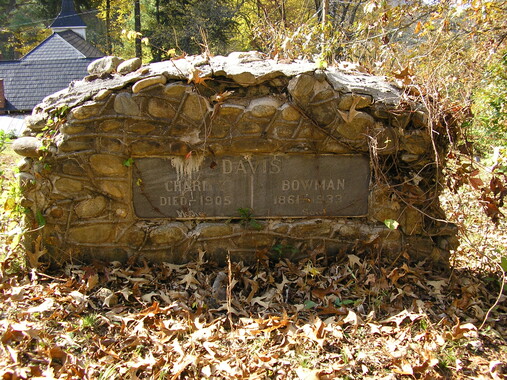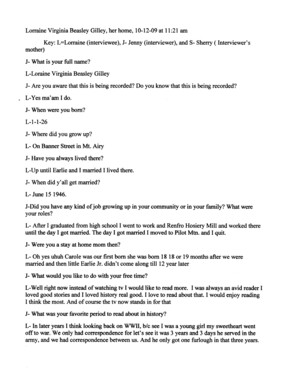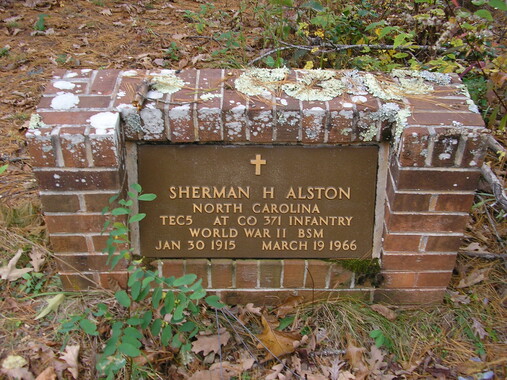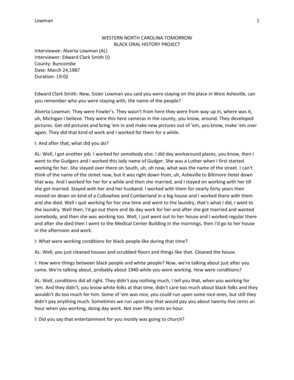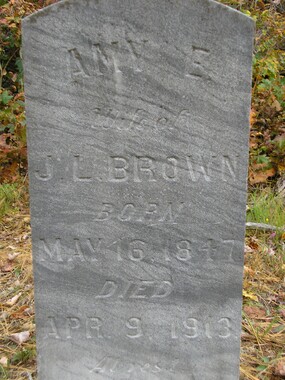Western Carolina University (11)
View all
- Canton Champion Fibre Company (6)
- Craft Revival (3)
- Great Smoky Mountains - A Park for America (520)
- Highlights from Western Carolina University (6)
- Horace Kephart (88)
- Oral Histories of Western North Carolina (30)
- Picturing Appalachia (1330)
- Stories of Mountain Folk (92)
- Travel Western North Carolina (27)
- Western Carolina University Herbarium (3)
- Western North Carolina Regional Maps (9)
- Cherokee Traditions (0)
- Civil War in Southern Appalachia (0)
- Journeys Through Jackson (0)
- LGBTQIA+ Archive of Jackson County (0)
- Western Carolina University Fine Art Museum Vitreograph Collection (0)
- Western Carolina University: Making Memories (0)
- Western Carolina University Publications (0)
- Western Carolina University Restricted Electronic Theses and Dissertations (0)
- World War II in Southern Appalachia (0)
University of North Carolina Asheville (1)
View all
- Forestry in Western North Carolina (3)
- Faces of Asheville (0)
- Grove Park Inn Photograph Collection (0)
- Isaiah Rice Photograph Collection (0)
- Morse Family Chimney Rock Park Collection (0)
- Picturing Asheville and Western North Carolina (0)
- Appalachian National Park Association (1)
- Bennett, Kelly, 1890-1974 (1048)
- Berry, Walter (42)
- Champion Fibre Company (1)
- Ensley, A. L. (Abraham Lincoln), 1865-1948 (1)
- Grant, George Alexander, 1891-1964 (19)
- Kephart, Horace, 1862-1931 (69)
- Kephart, Laura, 1862-1954 (2)
- Masa, George, 1881-1933 (6)
- North Carolina Park Commission (1)
- Roth, Albert, 1890-1974 (50)
- Sherrill's Photography Studio (23)
- Stearns, I. K. (181)
- USFS (3)
- Weaver, Zebulon, 1872-1948 (4)
- Wilburn, Hiram Coleman, 1880-1967 (3)
- Allanstand Cottage Industries (0)
- Brasstown Carvers (0)
- Cain, Doreyl Ammons (0)
- Carver, George Washington, 1864?-1943 (0)
- Cathey, Joseph, 1803-1874 (0)
- Champion Paper and Fibre Company (0)
- Cherokee Indian Fair Association (0)
- Cherokee Language Program (0)
- Crittenden, Lorraine (0)
- Crowe, Amanda (0)
- Edmonston, Thomas Benton, 1842-1907 (0)
- Fromer, Irving Rhodes, 1913-1994 (0)
- George Butz (BFS 1907) (0)
- Goodrich, Frances Louisa (0)
- Heard, Marian Gladys (0)
- Kephart, Calvin, 1883-1969 (0)
- Laney, Gideon Thomas, 1889-1976 (0)
- McElhinney, William Julian, 1896-1953 (0)
- Niggli, Josephina, 1910-1983 (0)
- Osborne, Kezia Stradley (0)
- Owens, Samuel Robert, 1918-1995 (0)
- Penland Weavers and Potters (0)
- Rhodes, Judy (0)
- Roberts, Vivienne (0)
- Schenck, Carl Alwin, 1868-1955 (0)
- Smith, Edward Clark (0)
- Southern Highland Handicraft Guild (0)
- Southern Highlanders, Inc. (0)
- Stalcup, Jesse Bryson (0)
- Thompson, James Edward, 1880-1976 (0)
- United States. Indian Arts and Crafts Board (0)
- Vance, Zebulon Baird, 1830-1894 (0)
- Western Carolina College (0)
- Western Carolina Teachers College (0)
- Western Carolina University (0)
- Western Carolina University. Mountain Heritage Center (0)
- Whitman, Walt, 1819-1892 (0)
- Williams, Isadora (0)
- 1870s (1)
- 1880s (2)
- 1890s (8)
- 1900s (38)
- 1910s (162)
- 1920s (676)
- 1930s (718)
- 1940s (356)
- 1950s (31)
- 1960s (8)
- 1970s (10)
- 1980s (4)
- 2000s (1)
- 2010s (1)
- 1600s (0)
- 1700s (0)
- 1800s (0)
- 1810s (0)
- 1820s (0)
- 1830s (0)
- 1840s (0)
- 1850s (0)
- 1860s (0)
- 1990s (0)
- 2020s (0)
- Appalachian Region, Southern (2399)
- Asheville (N.C.) (1917)
- Avery County (N.C.) (26)
- Blount County (Tenn.) (161)
- Buncombe County (N.C.) (1671)
- Cherokee County (N.C.) (283)
- Clay County (N.C.) (555)
- Graham County (N.C.) (233)
- Great Smoky Mountains National Park (N.C. and Tenn.) (510)
- Haywood County (N.C.) (3522)
- Henderson County (N.C.) (70)
- Jackson County (N.C.) (4692)
- Knox County (Tenn.) (25)
- Knoxville (Tenn.) (12)
- Lake Santeetlah (N.C.) (10)
- Macon County (N.C.) (420)
- Madison County (N.C.) (211)
- McDowell County (N.C.) (39)
- Mitchell County (N.C.) (132)
- Polk County (N.C.) (35)
- Qualla Boundary (981)
- Rutherford County (N.C.) (76)
- Swain County (N.C.) (2113)
- Transylvania County (N.C.) (247)
- Watauga County (N.C.) (12)
- Waynesville (N.C.) (73)
- Yancey County (N.C.) (72)
- Albums (books) (1)
- Clippings (information Artifacts) (36)
- Crafts (art Genres) (3)
- Depictions (visual Works) (2)
- Drawings (visual Works) (2)
- Envelopes (2)
- Facsimiles (reproductions) (1)
- Glass Plate Negatives (26)
- Interviews (122)
- Land Surveys (1)
- Letters (correspondence) (57)
- Manuscripts (documents) (65)
- Maps (documents) (25)
- Memorandums (4)
- Negatives (photographs) (1126)
- Newsletters (9)
- Photographs (433)
- Portraits (112)
- Postcards (20)
- Publications (documents) (18)
- Slides (photographs) (187)
- Sound Recordings (121)
- Specimens (3)
- Speeches (documents) (1)
- Transcripts (24)
- Aerial Photographs (0)
- Aerial Views (0)
- Articles (0)
- Artifacts (object Genre) (0)
- Bibliographies (0)
- Biography (general Genre) (0)
- Cards (information Artifacts) (0)
- Design Drawings (0)
- Fiction (general Genre) (0)
- Financial Records (0)
- Fliers (printed Matter) (0)
- Guidebooks (0)
- Internegatives (0)
- Minutes (administrative Records) (0)
- Newspapers (0)
- Occupation Currency (0)
- Paintings (visual Works) (0)
- Pen And Ink Drawings (0)
- Periodicals (0)
- Personal Narratives (0)
- Plans (maps) (0)
- Poetry (0)
- Programs (documents) (0)
- Questionnaires (0)
- Scrapbooks (0)
- Sheet Music (0)
- Songs (musical Compositions) (0)
- Text Messages (0)
- Tintypes (photographs) (0)
- Video Recordings (physical Artifacts) (0)
- Vitreographs (0)
- A.L. Ensley Collection (1)
- Appalachian National Park Association Records (3)
- Canton Area Historical Museum (5)
- Carlos C. Campbell Collection (32)
- Cataloochee History Project (1)
- Frank Fry Collection (25)
- George Masa Collection (5)
- Hiram C. Wilburn Papers (3)
- Historic Photographs Collection (37)
- Horace Kephart Collection (146)
- Humbard Collection (33)
- John B. Battle Collection (3)
- Kelly Bennett Collection (1068)
- R.A. Romanes Collection (20)
- Sara Madison Collection (1)
- Sherrill Studio Photo Collection (23)
- Smoky Mountains Hiking Club Collection (210)
- Stories of Mountain Folk - Radio Programs (92)
- WCU Mountain Heritage Center Oral Histories (4)
- WCU Oral History Collection - Mountain People, Mountain Lives (5)
- Western North Carolina Tomorrow Black Oral History Project (13)
- Zebulon Weaver Collection (9)
- Appalachian Industrial School Records (0)
- Axley-Meroney Collection (0)
- Bayard Wootten Photograph Collection (0)
- Bethel Rural Community Organization Collection (0)
- Blumer Collection (0)
- C.W. Slagle Collection (0)
- Cherokee Studies Collection (0)
- Daisy Dame Photograph Album (0)
- Daniel Boone VI Collection (0)
- Doris Ulmann Photograph Collection (0)
- Elizabeth H. Lasley Collection (0)
- Elizabeth Woolworth Szold Fleharty Collection (0)
- Gideon Laney Collection (0)
- Hazel Scarborough Collection (0)
- Hunter and Weaver Families Collection (0)
- I. D. Blumenthal Collection (0)
- Isadora Williams Collection (0)
- Jesse Bryson Stalcup Collection (0)
- Jim Thompson Collection (0)
- John C. Campbell Folk School Records (0)
- John Parris Collection (0)
- Judaculla Rock project (0)
- Love Family Papers (0)
- Major Wiley Parris Civil War Letters (0)
- Map Collection (0)
- McFee-Misemer Civil War Letters (0)
- Mountain Heritage Center Collection (0)
- Norburn - Robertson - Thomson Families Collection (0)
- Pauline Hood Collection (0)
- Pre-Guild Collection (0)
- Qualla Arts and Crafts Mutual Collection (0)
- Rosser H. Taylor Collection (0)
- Samuel Robert Owens Collection (0)
- The Reporter, Western Carolina University (0)
- Venoy and Elizabeth Reed Collection (0)
- WCU Gender and Sexuality Oral History Project (0)
- WCU Students Newspapers Collection (0)
- William Williams Stringfield Collection (0)
- African Americans (32)
- Appalachian Trail (5)
- Artisans (20)
- Cherokee women (1)
- Church buildings (22)
- Civilian Conservation Corps (U.S.) (26)
- Dams (32)
- Floods (10)
- Folk music (2)
- Forest conservation (3)
- Forests and forestry (12)
- Great Smoky Mountains National Park (N.C. and Tenn.) (31)
- Hunting (4)
- Logging (1)
- Maps (13)
- Mines and mineral resources (4)
- Postcards (16)
- Railroad trains (5)
- Sports (2)
- Storytelling (62)
- Waterfalls -- Great Smoky Mountains (N.C. and Tenn.) (4)
- World War, 1939-1945 (20)
- Cherokee art (0)
- Cherokee artists -- North Carolina (0)
- Cherokee language (0)
- Cherokee pottery (0)
- College student newspapers and periodicals (0)
- Dance (0)
- Education (0)
- Forced removal, 1813-1903 (0)
- Gender nonconformity (0)
- Landscape photography (0)
- North Carolina -- Maps (0)
- Paper industry (0)
- Pottery (0)
- Rural electrification -- North Carolina, Western (0)
- School integration -- Southern States (0)
- Segregation -- North Carolina, Western (0)
- Slavery (0)
- Weaving -- Appalachian Region, Southern (0)
- Wood-carving -- Appalachian Region, Southern (0)
- Sound (121)
- StillImage (1823)
- Text (198)
- MovingImage (0)
Interview with Betty Carlson and Karen Carlson Hall
Item
Item’s are ‘child’ level descriptions to ‘parent’ objects, (e.g. one page of a whole book).
-
Betty Carlson and her daughter Karen Carlson Hall are interviewed as part of the "Native Plants Project"--a research project of the Mountain Heritage Center at Western Carolina University. In this interview they discuss their interest in native plants and wildflowers. The interview takes place in Bryson City in the house that belonged to Betty's parents and Betty talks about how, while growing up, she would go out exploring for wildflowers--ginseng and orchids. In fact, her parents had bought this property for the abundance of springs and flowers located on it. She talks about how her maternal grandfather was a self taught naturalist and other men in her family were interested in the sciences. She did not think her family used plants for medicinal purposes considering they were scientifically oriented and Betty's perception was in line with this as well. Along with Karen they have been growing plants on their property--naturalizing some orchids and pitcher plants primarily for aesthetic and not medicinal purposes. Karen and Betty regularly visit portions of their large property spanning 46 acres to study the local plants that grow there seasonally. Karen talks about how she enjoys checking on the plants that grow on their property like yellowroot, various mosses, swamp plants, and pitcher plants. She also states she was interested in the medicinal uses of the plants and would like to see more of them tested scientifically for medicinal uses. As an ethnobotanist, Karen states she was interested in understanding the unique human perspective on the uses of plants as established in folklore and also to trace if there were any scientific basis for such use. The interview concludes with a discussion of the effects of medicine on health. While Betty considers medicine has played a crucial role in promoting longevity, its standards have nonetheless emphasized a rigidity that lack a human touch. Karen too feels modern medicine and, even doctors, lack the human aspect that existed in old country doctors.
-
Object
Object’s are ‘parent’ level descriptions to ‘children’ items, (e.g. a book with pages).
-
Betty Carlson and her daughter Karen Carlson Hall are interviewed as part of the "Native Plants Project"--a research project of the Mountain Heritage Center at Western Carolina University. In this interview they discuss their interest in native plants and wildflowers. The interview takes place in Bryson City in the house that belonged to Betty's parents and Betty talks about how, while growing up, she would go out exploring for wildflowers--ginseng and orchids. In fact, her parents had bought this property for the abundance of springs and flowers located on it. She talks about how her maternal grandfather was a self taught naturalist and other men in her family were interested in the sciences. She did not think her family used plants for medicinal purposes considering they were scientifically oriented and Betty's perception was in line with this as well. Along with Karen they have been growing plants on their property--naturalizing some orchids and pitcher plants primarily for aesthetic and not medicinal purposes. Karen and Betty regularly visit portions of their large property spanning 46 acres to study the local plants that grow there seasonally. Karen talks about how she enjoys checking on the plants that grow on their property like yellowroot, various mosses, swamp plants, and pitcher plants. She also states she was interested in the medicinal uses of the plants and would like to see more of them tested scientifically for medicinal uses. As an ethnobotanist, Karen states she was interested in understanding the unique human perspective on the uses of plants as established in folklore and also to trace if there were any scientific basis for such use. The interview concludes with a discussion of the effects of medicine on health. While Betty considers medicine has played a crucial role in promoting longevity, its standards have nonetheless emphasized a rigidity that lack a human touch. Karen too feels modern medicine and, even doctors, lack the human aspect that existed in old country doctors.
-
